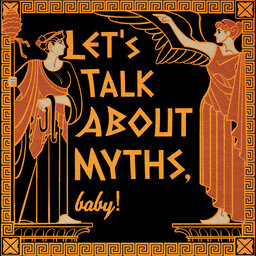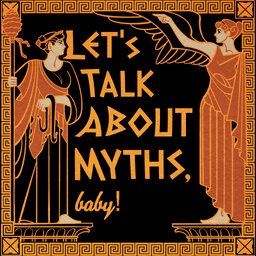Beloved of Aphrodite, the Lives & Legacies of Ancient Greek Sex Workers
A little look into the lives of ancient Greek sex workers, particularly two Hetairai, Phryne and Rhodopis, whose accomplishments achieved them 2300+ years long legacies. Help keep LTAMB going by subscribing to Liv's Patreon for bonus content!
CW/TW: far too many Greek myths involve assault. Given it's fiction, and typically involves gods and/or monsters, I'm not as deferential as I would be were I referencing the real thing.
Sources: Phryne: A Life in Fragments by Melissa Funke; Love in Ancient Greece by Robert Flaceliere; Herodotus' Histories, translated by GC Macauley; Aphrodite by Monica Cyrino (the Nossis poem is found here); Goddesses, Whores, Wives, and Slaves: Women in Antiquity by Sarah B Pomeroy; Venus and Aphrodite by Bettany Hughes; Diodorus Siculus and Strabo, from the Topostext entry on Rhodopis.
Attributions and licensing information for music used in the podcast can be found here: mythsbaby.com/sources-attributions.
Let's Talk About Myths, Baby! Greek & Roman Mythology Retold
The most entertaining and enraging stories from Greek mythology and the wider Ancient Mediterranean …Social links
Follow podcast
Recent clips

AHFG Book Club: Jenny Williamson's Enemy of My Dreams
1:16:02

RE-AIR: Conversations: A Long and Storied History of Sparta, Modern Misuse & Misconception w/ Stephen Hodkinson
1:40:25

Hermes Historia: Giorgos the Oikist, Colonization in Greek Antiquity
42:43
 Let's Talk About Myths, Baby! Greek & Roman Mythology Retold
Let's Talk About Myths, Baby! Greek & Roman Mythology Retold